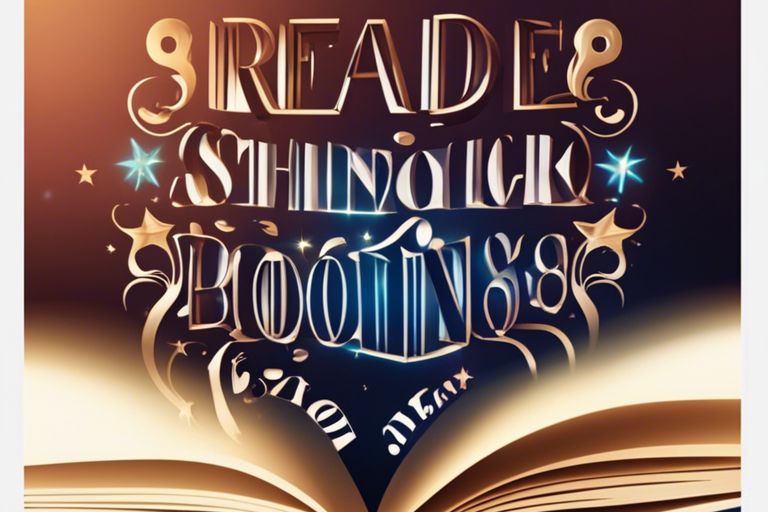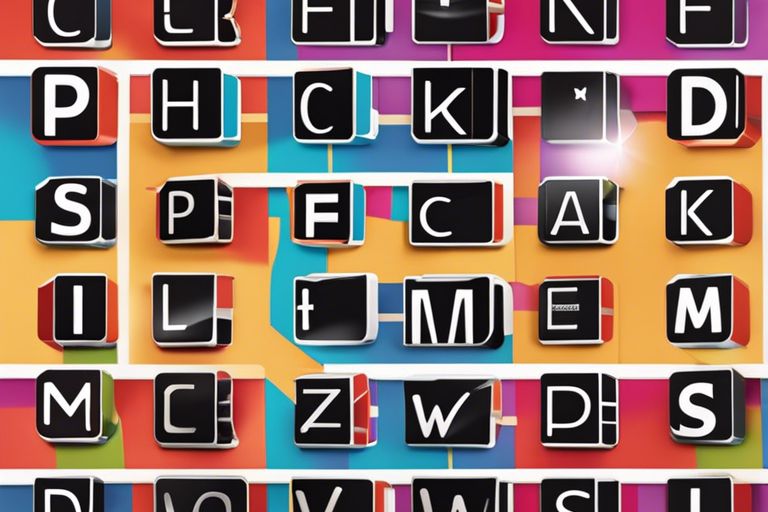Embarking on the journey of learning phonics can be both exciting and challenging, especially for young learners. In today’s digital age, phonics apps have become crucial tools in helping children develop crucial reading and language skills. Our comprehensive review of the best phonics apps of 2024 aims to guide parents and educators in selecting top-notch apps that combine fun and education seamlessly. From interactive games that engage young learners to personalised learning experiences that tailor lessons to individual needs, we explore into the most effective, safe, and innovative apps available. Stay tuned as we highlight the key features and benefits of each app, ensuring that you make informed decisions when it comes to enriching your child’s learning journey.
Key Takeaways:
- Phonics Apps are Essential: Phonics apps play a crucial role in helping children develop their reading skills through interactive and engaging activities.
- Customised Learning: The best phonics apps offer personalised learning experiences, catering to each child’s individual needs and progress.
- Engaging Content: Interactive games, colourful animations, and audio features are key components that keep children motivated and interested in learning phonics.
- Progress Tracking: Effective phonics apps provide detailed progress reports, allowing parents and teachers to monitor a child’s development and identify areas for improvement.
- Educational Value: Phonics apps not only help children learn to read but also enhance their vocabulary, comprehension, and overall language skills in a fun and interactive way.
Methodology
Selection Criteria for Phonics Apps
When identifying the best phonics apps for our review, we adhered to strict criteria to ensure that only the most effective and educational apps made the cut. Our criteria included adequacy of phonics instruction, engagement levels for young learners, quality of interactive activities, user-friendliness, and relevance to phonics curriculum standards.
We also took into consideration reviews and ratings from educators and parents, as well as any awards or accolades received by the apps. By evaluating apps against these criteria, we were able to identify the top phonics apps that offer a well-rounded and effective learning experience for children.
Review Process and Evaluation Metrics
Our review process involved thorough testing and evaluation of each phonics app based on a set of key metrics. These metrics included effectiveness in teaching phonics principles, engagement levels for children, educational value, interactive features, and overall user experience.
Our team of reviewers, comprised of education experts and app developers, meticulously assessed each app to provide an unbiased and detailed evaluation. This rigorous review process allowed us to identify the best phonics apps that not only educate but also captivate and inspire young learners.
For the Review Process and Evaluation Metrics section, more detailed information will be provided on the specific assessment criteria used to evaluate the phonics apps thoroughly. This will offer readers a deeper insight into the methodology behind our reviews and how we determined the standout apps in this competitive market.
Top Phonics Apps of 2024
Detailed App Reviews
When considering phonics apps in 2024, the competition is fierce. Let’s research into some of the top contenders in this category. Phonics Genius stands out for its interactive games that make learning phonics fun and engaging for children. With a wide range of activities covering different phonics skills, this app is a comprehensive tool for young learners.
Another noteworthy app is ABCmouse, known for its systematic approach to teaching phonics. This app breaks down phonics concepts into bite-sized lessons, allowing children to progress at their own pace. The colourful animations and engaging characters also make learning enjoyable for kids.
Comparative Analysis and Features
When comparing phonics apps, it’s crucial to look at key features that set them apart. In the table below, we highlight the strengths of Phonics Genius and ABCmouse to help you make an informed decision. Both apps offer a variety of activities to reinforce phonics skills, but their approaches differ slightly. While Phonics Genius focuses on game-based learning, ABCmouse offers a more structured curriculum for systematic learning.
Comparative Analysis of Phonics Apps
| Features | Phonics Genius |
| Learning Approach | Game-based |
| Specialisation | Wide range of activities |
| Features | ABCmouse |
| Learning Approach | Structured curriculum |
| Specialisation | Bite-sized lessons |
Both Phonics Genius and ABCmouse have their unique strengths, catering to different learning styles. Whether your child thrives on interactive play or benefits from a more structured approach, these apps can provide valuable support in developing phonics skills.
User Experience and Accessibility
Interface Design and Usability
Concerning phonics apps, interface design plays a crucial role in engaging young learners. The best apps have intuitive interfaces that are visually appealing and easy to navigate, allowing children to focus on learning without getting frustrated by complex menus or buttons. Usability is another key factor – icons and instructions should be clear and simple, guiding children through activities seamlessly.
Furthermore, interactive elements such as drag-and-drop features, animations, and engaging sound effects enhance the user experience and make learning fun. A well-designed interface and high usability ensure that children can independently navigate the app, fostering a sense of empowerment and confidence in their learning journey.
Adaptability for Different Learning Styles
Phonics apps that cater to different learning styles are highly effective in supporting all children, regardless of their preferred learning method. Visual learners may benefit from colourful graphics and animations, while auditory learners can focus on phonetic sounds and word pronunciations. Adapting content to suit various learning styles maximises engagement and learning outcomes for a diverse range of users.
Developers are increasingly incorporating features like customisable settings and multi-sensory activities to accommodate different learning preferences. This flexibility allows children to engage with the app in a way that resonates with their individual learning style. By personalising the learning experience, phonics apps can effectively reach and benefit a wider audience.
Advancements and Innovations
In the ever-evolving world of phonics education, advancements and innovations in technology have revolutionised the way children learn to read and write. The Best Phonics Apps of 2024 are at the forefront of these developments, incorporating cutting-edge features and seamless integration with educational curricula.
Cutting-edge Features in Phonics Learning
The latest phonics apps are equipped with interactive activities that engage young learners and personalise learning experiences based on individual progress. These apps utilise speech recognition technology to provide feedback on pronunciation, while gamified elements make learning fun and captivating.
Integration with Educational Curricula
Phonics apps today are designed to align with national curriculum standards and early learning goals, ensuring that children are receiving a comprehensive education that meets official requirements. Automatic progress tracking and reporting features allow educators and parents to monitor a child’s development and tailor instruction accordingly.
Furthermore, the integration with educational curricula extends beyond mere compliance, with apps offering supplementary materials and resources to support classroom teaching and enhance learning outcomes.
The Best Phonics Apps of 2024 – A Comprehensive Review
After evaluating numerous phonics apps available in 2024, it is evident that the importance of digital resources in education continues to grow. From interactive games to personalised learning experiences, the top phonics apps offer a range of engaging activities to help children develop crucial reading and writing skills. Whether you are a parent looking to support your child’s learning or a teacher searching for effective classroom tools, this review provides valuable insights into the most effective phonics apps of 2024. With technology playing an increasingly significant role in education, embracing these innovative apps can truly enhance phonics instruction and promote literacy development in young learners.
FAQ
Q: What is the importance of phonics apps in 2024?
A: Phonics apps are crucial in 2024 as they help children develop foundational reading skills, improve language acquisition, and enhance overall literacy levels.
Q: How can phonics apps benefit young learners?
A: Phonics apps can benefit young learners by making learning interactive, engaging, and fun, thereby increasing their motivation to learn and improving retention of phonics concepts.
Q: What features should one look for in a top-rated phonics app?
A: When deciding on a top-rated phonics app, look for features such as interactive activities, clear audio pronunciations, engaging visuals, progress tracking, and a variety of difficulty levels to cater to different learning needs.
Q: Are there any free phonics apps worth considering?
A: Yes, there are free phonics apps that offer quality educational content and engaging activities. Some reputable free phonics apps include ABC Phonics, Phonics Play, and Starfall ABCs.
Q: How can parents ensure their child benefits most from using phonics apps?
A: Parents can ensure their child benefits most from using phonics apps by setting aside dedicated time for phonics practice, actively participating in their child’s learning process, providing encouragement and praise, and monitoring their progress regularly.












